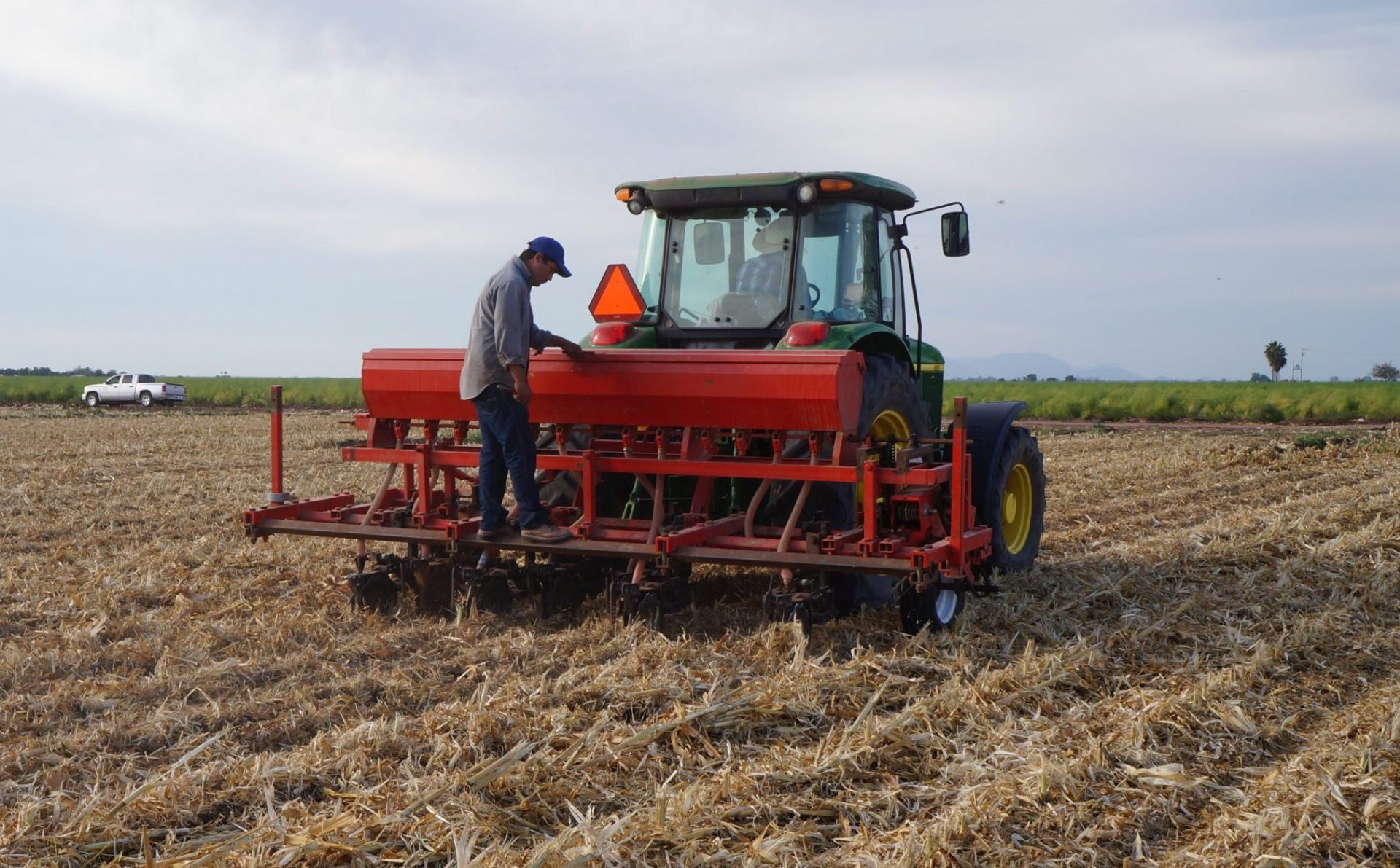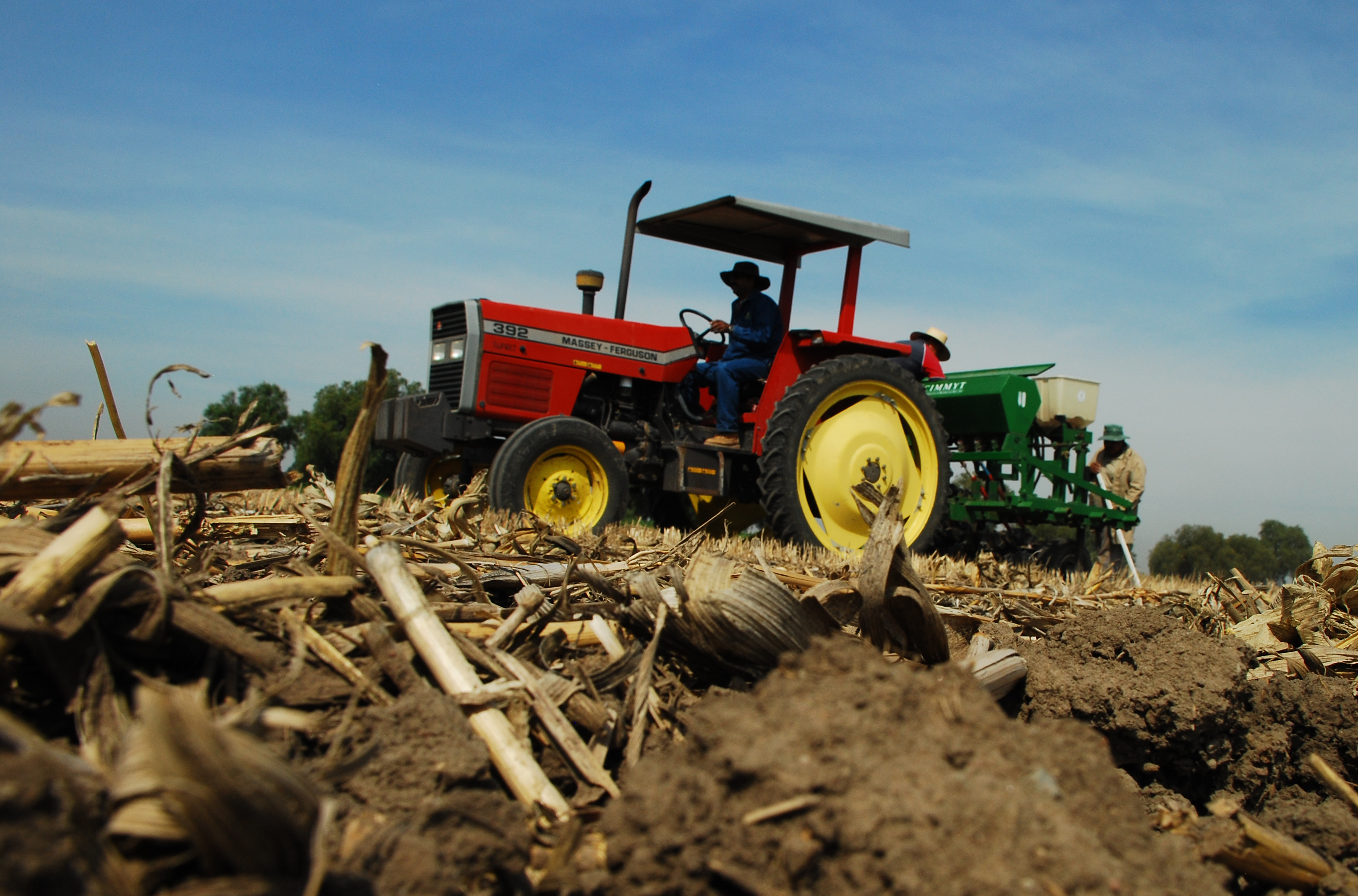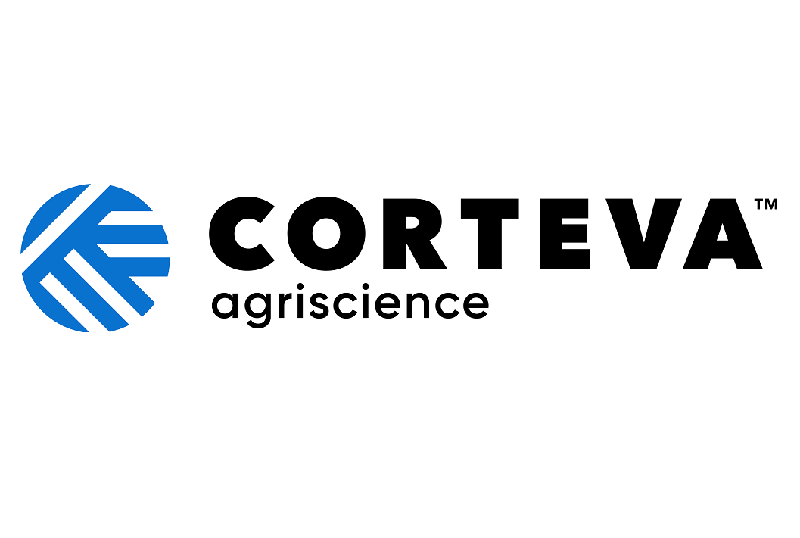Achieving greater food security requires a continued increase in global wheat yields, which the developing world plays a central role in meeting. Newly published research covering 60 years of wheat yield trends in the Yaqui Valley, Mexico, provides insights into how farmers can increase yields to address this need.
By dividing the 60-year interval into three 20-year periods between 1960-2019 and correcting farm yield for the strong influence of inter-annual variation in January to March minimum temperature, scientists from Commonwealth Scientific and Industrial Research Organisation (CSIRO) and the International Maize and Wheat Improvement Center (CIMMYT) have taken steps towards advancing the sustainability of the Valley’s wheat cropping system by studying farm yield for the irrigated spring wheat production environment.
Total yield increase, corrected for temperature and CO2 rise, relative to average yield in each period, was 4.17%, 0.47%, and 1.59% p.a. for 1960–79, 1980–99, and 2000–19, respectively. The breeding component, estimated by the increase in the Varietal Yield Index in farmers’ fields, rose at 0.97%, 0.49%, and 0.71% p.a., respectively. The remaining yield change (3.16, -0.02%, and 0.87% p.a., respectively) comprised the net effect of improved crop management (agronomic progress), plus that of off-farm changes.
In the first period, off-farm developments were bolstered by strong government financial support whereas developments in the second period were hindered by the breakdown of the traditional smallholder land system and withdrawal of government support. The final period experienced better prices and improved access to technical advice.
Wheat is likely to continue playing a dominant role in the Yaqui Valley for the next 20-year period, especially from potential yield increase through breeding. However, closing the yield gap is becoming more challenging due to fluctuations in energy price, goals to achieve net zero CO2 and environmental signals. The biophysical sustainability of the Valley’s wheat cropping system requires urgent actions through better fertilizer management, greater cropping diversity, integrated management of biotic threats, acceptance of no-till, residue retention and controlled traffic.
Lessons from the Yaqui Valley bear importance for global wheat security given that without area increase and new technologies, food security will increasingly depend on developing countries.
Read the full publication here: Sixty years of irrigated wheat yield increase in the Yaqui Valley of Mexico: Past drivers, prospects and sustainability
Cover photo: Workers sowing wheat into sorghum residue. (Credit: CIMMYT)


 Innovations
Innovations 
